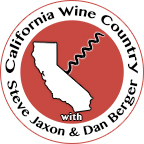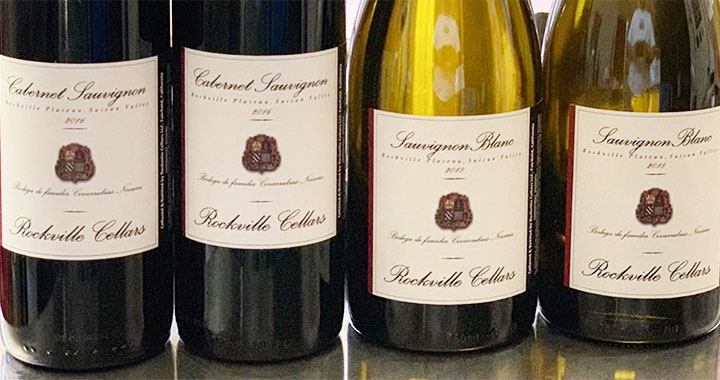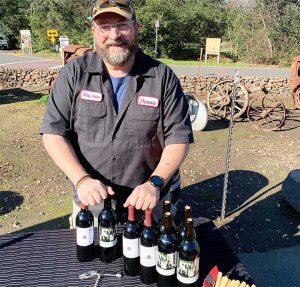Podcast: Play in new window | Download (Duration: 35:06 — 32.3MB) | Embed
Subscribe: Apple Podcasts | RSS | More
Don Huffman is our guest on California Wine Country with Steve Jaxon and Dan Berger today. Don produces wine under the Rockville Cellars label and he is also an expert in wine closures. Visit Don Huffman’s Twitter page for up-to-the-minute information. Don Huffman also has this Instagram page.
Among other things Don Huffman is the head of Rockville Cellars, a new winery founded in 2018. The name Rockville comes from the name of a small area near Fairfield, between Fairfield and Green Valley. It’s about 750 ft. elevation and the fields are full of large red rocks. They have estate grown wines, Cabernet Sauvignon, Cabernet Franc, Pinot Noir and Sauvignon Blanc. They also make other brands, like the Sir Pig, which is a Rosé made from Grenache and Counoise grapes. Counoise s a rare variety known for its acidity and floral flavors, which is hard to handle because it oxidizes quickly. The name Sir Pig comes from a nickname he had in 4H where he raised pigs.
Don Huffman is a wine closure expert. He was a creative director in the ad business for 25 years and his first job out of college was for an ad agency whose client Nomacork still makes top quality synthetic corks for wine bottles. With that account, his company became Vinventions. He is the director of quality and director of sales. He is the first director of sales there who is also a winemaker. The Sir Pig Rosé is very dry, with earthy aromatics and peach/stone fruit flavors. It is so dry it needs some food. It is unfiltered, so it also has some sediment in the bottle. When he filtered it, he almost lost all its color, so he made it a coarse-filtered wine.
Suisun Valley, where he is located, is close to Napa County, about eleven miles away. He also has a Swope Family Estates wine named after his grandmother. It is a tribute to his family who came to Suisun valley as farm workers in the early 1900s. Visit their website to see a beautiful old photo of his family, taken in 1913.
The wine is a Tempranillo, a grape grown mostly in Spain. The Spanish usually age it two years before releasing it. This is a 2017. He calls it a fire vintage. The fire stopped 80 yards from his winery. He harvested on Saturday then had to flee for six days. When he got back to his harvested grapes, some fermentation was already happening. He used neutral barrels and let the variety speak. It’s not very complex and easy drinking.
At Mancas corner, in Fairfield, there are a couple of small local business worth noting: The Mancas Steakhouse is a great restaurant. The Filling Station is a place that offers many tastings from wine producers who don’t have their own tasting rooms.
Don Huffman has a carbonic macerated Merlot from 2017, also a Swope label. He explains what carbonic maceration is. Traditionally, the grapes are crushed and the juice is in contact with the skins. In carbonic maceration, you put the whole clusters in the tank. It’s called “inter-cellular respiration” the fermentation begins inside each berry. When you open the vat back up in a month, the berries are fully fermented. You can pop one in your mouth and it’s 14% alcohol.
Dan explains that people made a mistake with Merlot, a couple of decades ago, planting it in a lot in the wrong places, and for a while, this gave Merlot a bad reputation. This wine has good acidity, it needs to be decanted and left for about an hour. They make barely 650 cases per year.
20 years ago, there was a crisis in the closure industry. Many alternative closures sprang up making different cork alternatives. His company Nomacork makes the latest generation of high quality corks designed to last 25 years. Steve Jaxon asks Don about screw caps. Don says that screwcaps are convenient but he describes other factors than just the cap, that determine how well it works. For example there are two types of liners, one is tighter than the other. They explain how a winery has to make an informed choice about bottling and closure based on many variables.


